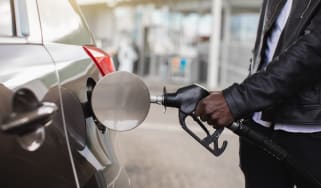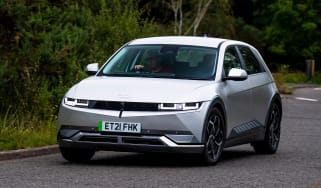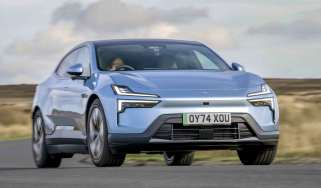What are alternative fuel vehicles?
We explore the types of ‘alternative fuels’ used to power cars including hydrogen fuel cells, LPG, CNG, electricity and others
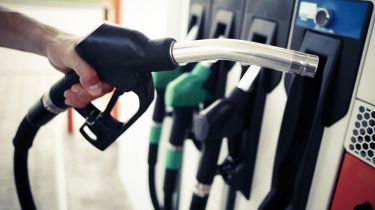
In the simplest terms, alternative fuel vehicles (AFVs) are vehicles that run on fuels other than conventional petrol or diesel. There are various fuel types, and combinations of fuel type, that would qualify a car running on them to fall under the alternative fuel vehicle banner and the definition of what actually constitutes an AFV varies slightly depending on the context and who is setting the parameters. In this guide we’ll explain everything you need to know about Alternative Fuel Vehicles…
What is an alternative fuel vehicle?
The UK government defines alternative fuels as “fuel or power sources which serve, at least partly, as a substitute for fossil oil sources in the energy supply to transport”. It lists hydrogen, liquid or gaseous biofuels, synthetic fuels, compressed natural gas (CNG) and liquefied petroleum gas (LPG) as examples. As we’ll explore later, CNG and LPG are fossil fuels but they are used in combustion engines as cleaner, cheaper alternatives to petrol and diesel.
It’s worth noting that none of these alternative fuels have made a significant impact on the UK car market yet, but some are popular in other markets around the world and biofuels are present in small quantities as an additive in all UK petrol and diesel. Of course, there’s one alternative fuel that’s in the process of revolutionising the global car market before our eyes and that is electricity.
When we’re talking about VED road tax and car sales figures, electric and/or hybrid cars are often included in the ‘alternative fuel vehicles category’, as you might expect. In tax terms, the Alternative Fuel Vehicles definition includes hybrids (cars using a petrol or diesel engine with some level of electric assistance) as well as cars running on bioethanol and liquid petroleum gas.
While you currently don’t have to pay any road tax for electric vehicles, you’ll pay a slightly lower annual road tax rate for these Alternative Fuel Vehicles (£145) than petrol or diesel ones (£155).
In the past, you may also have seen AFV used as a blanket term for any car that isn’t a conventional petrol or diesel model when we’re talking about car sales figures in the UK. As sales of electric cars and hybrids have increased, however, it’s more common to see car sales figures from the Society of Motor Manufacturers and Traders (SMMT) specifically split into petrol, diesel, electric (BEV), hybrid (HEV), plug-in hybrid (PHEV) and AFV - with AFV referring to cars running on LPG, biofuels, etc.
So, having cleared up what we mean when we talk about alternative fuel vehicles, let’s look in detail at some of the alternative fuels themselves…
Electricity
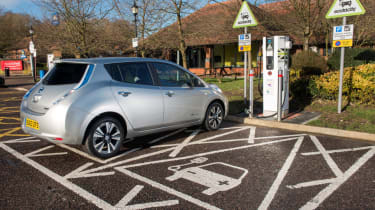
While uptake of electric vehicles has increased dramatically in recent times, electricity isn’t yet the main source of fuel for most cars, which means it’s still an alternative fuel in the traditional sense. Most electric vehicles are charged via a wallbox charger from home, or can be charged on the public charging network. The very fastest charging EVs can take around half-an-hour to charge, which is still longer than it takes to fuel a conventional petrol or diesel engine. Electric cars produce no emissions at the tailpipe, and this is good for air quality in densely populated areas. Electric cars can offer lower running costs given they are generally cheaper to charge from home and free to tax, although they are likely to be subject to taxation in the future.
Hybrid vehicles
One major alternative power source for cars is hybrid and plug-in hybrid technology, which still employs the use of petrol or diesel fuel, but supplements it with electric motors to keep emissions down and improve fuel economy.
The main difference between hybrids and plug-in hybrids is that a hybrid recharges its battery from the fossil-fuelled engine and kinetic energy recovery, while a plug-in hybrid is charged much like an electric vehicle using a charging point and can run on electricity alone for longer distances, around 30-50 miles between charges. This means that on short trips a PHEV might not need to use any petrol or diesel at all.
Hybrid vehicles aren’t future-proof, however, and their reliance on petrol and diesel fuel means that they will not be available for sale from 2035. The one exception is plug-in hybrid cars that can travel an as yet undefined ‘significant distance’ on electric power alone. In the meantime, hybrids serve as a good alternative to pure petrol and diesel as they can reduce fuel costs and concerns about emissions.
Hydrogen
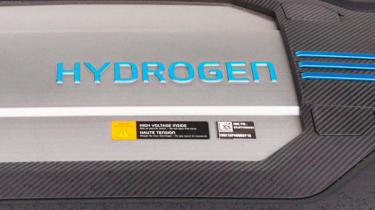
Hydrogen fuel cell vehicles are actually a form of electric vehicle themselves, and use hydrogen as the means to generate the power to run an electric motor. In practice, this means it’s just as easy to fill up on hydrogen at a fuel station as it is to fill up on petrol or diesel. However, there are very few hydrogen filling stations in the UK at the moment and even fewer hydrogen fuel cell cars on the market.
The byproduct of the reaction that takes place inside hydrogen fuel cells is water, so they don’t produce any other tailpipe emissions just like electric cars. Another criticism of hydrogen fuel is that it requires a lot of energy to extract from the environment, but beyond 2030, hydrogen fuel could still have its place in a more sustainable future.
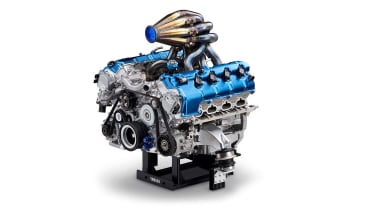
Some car manufacturers have also experimented with hydrogen combustion which converts hydrogen into energy by burning it like petrol or diesel. While hydrogen fuel cells emit zero tailpipe emissions besides water, hydrogen combustion engines still emit trace amounts of CO2 and nitrous oxides (NOx) which require filtering out through the exhaust system.
The fuel tank systems for cars which run on hydrogen combustion are where the biggest changes lie, as they are required to keep hydrogen very cold and pressurised so it doesn’t turn into a gas. Hydrogen is not as energy-dense as petrol or diesel, which means you need a lot more hydrogen compared to conventional fuels to power a car, and therefore require a bigger fuel tank. Toyota is developing a hydrogen V8 engine with help from Yamaha but time will tell whether hydrogen has a future in the internal combustion engine.
LPG

Liquid petroleum gas (LPG), is an alternative fuel that works much in the same way as petrol and diesel. LPG has been in use for a long time, despite not being a mainstream option in the UK. Some petrol cars can even be converted for LPG use, and some modern cars such as the Dacia Sandero are available with two fuel tanks so you can use either petrol or LPG. LPG is derived from natural gas byproducts and is still a fossil fuel that emits carbon dioxide, but it has previously been much cheaper than petrol or diesel. That’s less true nowadays and the jury is out on whether it’s worthwhile after the added cost of installing the necessary components for a car to run on it. Cars that run on LPG will also be banned from sale alongside petrol and diesel cars from 2030.
CNG

Compressed natural gas (CNG) is a more eco-friendly alternative to petrol and diesel and made by compressing down Methane to 1% of its original volume. It produces fewer harmful emissions compared to petrol or diesel and is cheaper.
One drawback of CNG, however, is that it takes up a lot of space to install a tank for its storage. Another issue is attributed to its production – leakage of unburned methane gas from which CNG is derived is a major issue as it is a more potent greenhouse gas than CO2, so it’s not thought of as a viable mainstream option given the risks to the environment. CNG cars will also be banned from sale from 2030.
Biofuels

Biofuels are fuels which are sourced from plant-based renewable sources. All petrol and diesel in the UK has to be made up partially from bio-renewable sources, so it’s not as unusual as it first seems. Our standard E10 petrol is 10% biofuel.
Bioethanol is made through the breakdown of the cells of living organisms into sugars which are then fermented to produce ethanol. Biodiesel is created by mixing vegetable oils with alcohol. While biofuels release less of some of the harmful emissions attributed to petrol and diesel, like carbon monoxide and sulphur oxide, they don’t solve the issue of carbon dioxide emissions, and also hold less energy per litre than traditional fuels. There are also concerns around the environmental impact of using land to grow the crops used for biofuels.
Synthetic and e-fuels

Synthetic and e-fuels are alternatives to conventional fuels which are produced through carbon-neutral processes. Instead of drilling for oil, synthetic and e-fuels are made up of hydrogen which is extracted from water and carbon extracted from the air – this process requires a lot of energy, but it is possible to carry out the process using carbon neutral wind or solar power.
Porsche is a big name in the synthetic fuel market, and it’s hoped that – while these fuels don’t offer a mainstream solution for direct replacement of conventional petrol and diesel – they might be a good option for keeping classic petrol and diesel cars on the road in the future.
If you want to sell your old petrol or diesel car for scrap and put the money towards something alternative, see our guide to scrapping your car...
Find a car with the experts

